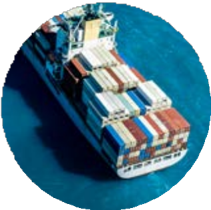 Steamship Mutual P&I Club has published guidance highlighting critical aspects and considerations for preventing losses associated with reefer cargo. Reefer cargo carriage otherwise known as refrigerated cargo in containers involves transporting perishable or temperature sensitive goods that require controlled temperature, humidity, and airflow to maintain quality during transit. Proper handling, monitoring, and documentation are essential to prevent losses and ensure cargo integrity, the guidance advises. Continue reading “Safe Carriage of Refrigerated Cargo in Containers”
Steamship Mutual P&I Club has published guidance highlighting critical aspects and considerations for preventing losses associated with reefer cargo. Reefer cargo carriage otherwise known as refrigerated cargo in containers involves transporting perishable or temperature sensitive goods that require controlled temperature, humidity, and airflow to maintain quality during transit. Proper handling, monitoring, and documentation are essential to prevent losses and ensure cargo integrity, the guidance advises. Continue reading “Safe Carriage of Refrigerated Cargo in Containers”
Health & Safety
Lightning protection at sea: What superyacht owners and crew need to know
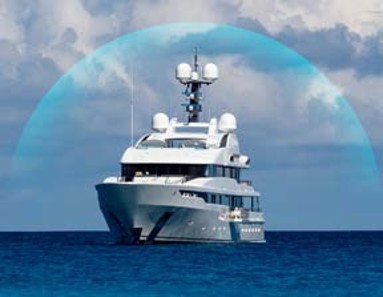
Lightning is one of nature’s most powerful and unpredictable forces – and for those at sea, it can be a serious hazard. With around 44 lightning strikes occurring every second worldwide, the threat is far more common than many realise. But how likely is a lightning strike to affect your vessel? Are sailing yachts more vulnerable? And what protection systems are available to reduce the risk? In this article, we explore the real-world risks of lightning at sea and how vessel owners and crew can stay safe with lightning protection at sea. Continue reading “Lightning protection at sea: What superyacht owners and crew need to know”
The burning question: understanding shipboard firefighting foam regulations
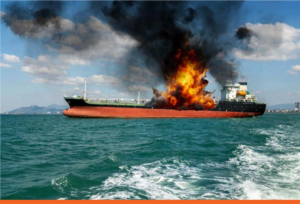
When it comes to firefighting foams for shipboard use, many marine surveyors feel uncertain about new and upcoming regulation and how it affects their clients. In addition to the new International Maritime Organisation’s regulations on PFOS in shipboard firefighting foam regulations, there are also new EU regulations on PFAS, and the UK’s Health and Safety Executive is currently in a consultation period concerning its draft legislation on PFAS. Many countries have also issued their own PFAs regulations or plan to do so, so the regulatory landscape is complex, contradictory and fragmented. Continue reading “The burning question: understanding shipboard firefighting foam regulations”
Safety recall of flares issued due to spontaneous combustion

The United States Coast Guard (USCG) has sent out a warning following a manufacturer recall of nearly 50,000 affected signal flares.
The USCG Office of Design and Engineering Standards was notified of a manufacturer recall of the Orion Skyblazer II Red XLT Aerial Signal (also called Orion XLT Skyblazer self-contained red meteor flare) due to three incidents of spontaneous combustion. There were no reported injuries. Continue reading “Safety recall of flares issued due to spontaneous combustion”
Global Shipping Business Network report
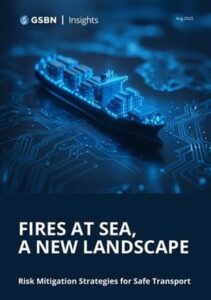 Global Shipping Business Network report argues that dangerous goods reshape the fires at sea landscape. The Global Shipping Business Network report focuses on the risk mitigation of the transportation of lithium-powered products in the maritime industry, which finds itself under increasing pressure to safely transport larger volumes of dangerous goods.
Global Shipping Business Network report argues that dangerous goods reshape the fires at sea landscape. The Global Shipping Business Network report focuses on the risk mitigation of the transportation of lithium-powered products in the maritime industry, which finds itself under increasing pressure to safely transport larger volumes of dangerous goods.
According to the Global Shipping Business Network report “Fires at Sea, A New Landscape – Risk Mitigation Strategies for Safe Transport” dangerous goods (DG) given their potential consequences, have received significant attention in conversations surrounding cargo handling. Continue reading “Global Shipping Business Network report”
MCA: MGN 710 (M) safety management systems for small workboats and pilot boats

The UK Maritime and Coastguard Agency (MCA) has published MGN 710 (M) safety management systems for small workboats and pilot boats.
Guidance on how owners and operators of small workboats and pilot boats can meet the Safety Management System (SMS) requirements of the recently launched Workboat Code Edition 3 is now available. Continue reading “MCA: MGN 710 (M) safety management systems for small workboats and pilot boats”
MCA lithium-ion battery update to fire safety MGN 681 (M)
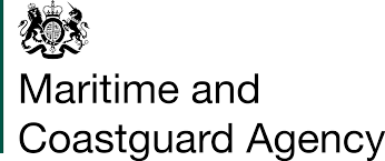
The UK Maritime and Coastguard Agency (MCA) has update to fire safety MGN 681 (M) and storage of small electric powered craft on yachts.
MGN 681 (M) Amendment 1 includes clarification for the functionality of storage and charging cabinets or boxes where these are used as part of the solution for the carriage of li-ion batteries used on personal vehicles. Continue reading “MCA lithium-ion battery update to fire safety MGN 681 (M)”
ABS shares guidance on revised recommendations for entering enclosed spaces aboard ships

The American Bureau of Shipping (ABS) has provided an overview of IMO Resolution MSC 581 (110) – Revised Recommendations for Entering Enclosed Spaces Aboard Ships.
These new recommendations supersede and revoke Resolution A.1050(27), replacing them with updated safety measures, definitions, and procedural requirements aimed at reducing fatalities during enclosed space entry. Continue reading “ABS shares guidance on revised recommendations for entering enclosed spaces aboard ships”
Gard – Beware of backflush filter failures

P&I club Gard has warned that a serious source of engine damage can come as a result of automatic backflush filter failure.
Automatic backflush filters are designed to protect engines by keeping fuel and lubricating oil clean. The filters generally consist of one or more chambers with a set of candles of fine wire mesh that the oil flows through. Larger particles get stuck on the surface while smaller particles flow through the filters and back into circulation. Continue reading “Gard – Beware of backflush filter failures”
MCA publishes update on new Fixed Aerosol Fire Extinguishing Systems guidance

The UK Maritime and Coastguard Agency has released an amendment to MGN 657 (M+F) Amendment 1 requirements for fixed aerosol fire extinguishing systems for use in small vessel machinery spaces.
The update clarifies that the design density should be calculated based on the net volume of the protected space, as well as clarifying the test criteria including the pass/fail criteria and arrangements for the test mock-up. Continue reading “MCA publishes update on new Fixed Aerosol Fire Extinguishing Systems guidance”
Operator modifications blamed by shipbuilder for Dali blackout
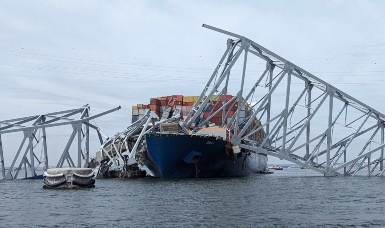
The fallout following the M/V Dali accident which caused the collapse of the Francis Scott Key bridge in Baltimore in March 2024 continues to make the news headlines and is likely to do so for many months to come. Now the vessel’s builder, HD Hyundai, has weighed in to respond. It says changes made after delivery bypassed critical redundancies, triggering the second Dali blackout that left the ship without propulsion or steering in the critical moments before the bridge strike. Continue reading “Operator modifications blamed by shipbuilder for Dali blackout”
How a tragic pilot ladder accident led to regulation changes

In a milestone for maritime pilots’ safety, on June 26 2025, the International Maritime Organization(IMO) significantly improved Pilot Transfer Arrangement (PTA) requirements by adopting amendments to International Convention for the Safety of Life at Sea (SOLAS) regulation V/23, as well as new mandatory PTA Performance Standards. The Performance Standards are incorporated into SOLAS, giving them the full force of international law. The path to this achievement began on a tragic day more than five years ago. On December 30, 2019, Captain Dennis Sherwood, a New York State- licensed pilot, was killed in a tragic pilot ladder accident. He fell while embarking a container ship using a combination arrangement with a trapdoor. Continue reading “How a tragic pilot ladder accident led to regulation changes”